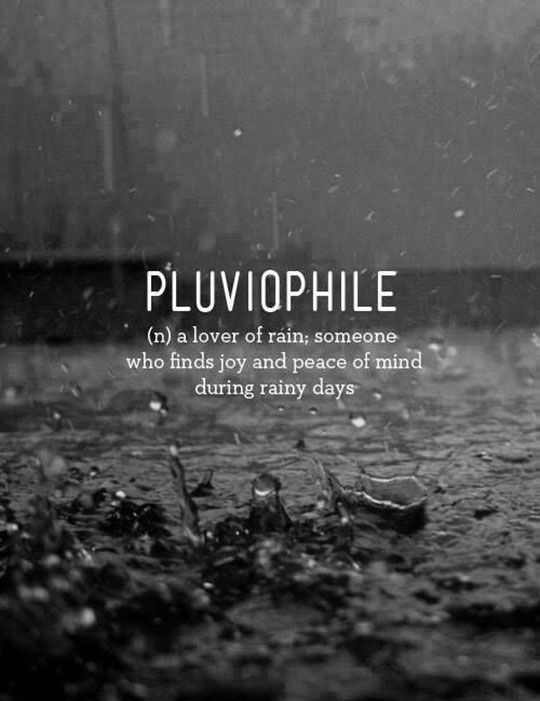Petrichor, the earthy scent after rain, smells like a refreshing combination of wet soil and raindrops. After rain, a unique and captivating aroma fills the air, carrying with it a sense of calm and tranquility.
This captivating scent is known as petrichor, a term derived from the Greek words for “stone” and “blood of the gods. ” It refers to the pleasant fragrance that emerges when raindrops touch the earth. Petrichor is a natural phenomenon that occurs when rainwater interacts with dry soil, releasing a distinct aroma that enchants our senses.
It is a refreshing blend of wet soil, minerals, and organic compounds. The composition of petrichor varies depending on the geographical location, climate, and the type of surface it falls upon, resulting in a unique smell that triggers feelings of nostalgia and brings a renewed sense of vitality. So, next time you step out after a rain shower, take a deep breath and enjoy the delightful scent of Petrichor.
Definition And Origin Of Petrichor
Did you ever wonder what that fresh, earthy scent is after a rainfall? It’s called Petrichor. This unique and refreshing aroma has a distinctive smell that many people find delightful.
Petrichor is an interesting term that originated from two Greek words – “petros” meaning stone and “ichor” meaning the fluid that flows through gods’ veins. The term was coined by two Australian scientists in 1964 to describe the smell that is released when rainwater encounters the earth.
When raindrops hit the ground, they disturb the microorganisms and bacteria present in the soil. This disruption releases various compounds and oils, such as geosmin and plant oils, which create a pleasing petrichor fragrance. The scent can vary depending on the type of soil, vegetation, and other environmental factors, which adds to its uniqueness.
Next time you experience the fresh scent after the rain, remember that it’s the enchanting fragrance of petrichor, a testament to the wonders of nature.
Chemical Composition Of Petrichor
|
Petrichor is the term used to describe the earthy smell that follows rain showers. It is a combination of various natural compounds released by the environment during rainfall. The distinct aroma arises from a blend of geosmin, an organic compound produced by bacteria, and various plant-derived oils such as terpenes and volatile organic compounds (VOCs). Geosmin, which is responsible for the earthy scent, is produced by actinobacteria present in soil and is released into the air when raindrops impact the ground. This compound is highly volatile and can easily be detected even at low concentrations. Additionally, plant oils like terpenes contribute to the fragrance of petrichor. Terpenes are commonly found in coniferous trees and are known for their distinct smells. The breakdown of compounds that contribute to the smell of petrichor includes geosmin, terpenes, and volatile organic compounds (VOCs). Together, these compounds create the delightful earthy aroma that many people associate with the freshness of rain. |
Overview of the Chemical Components of PetrichorPetrichor, the pleasant fragrance that occurs after rain, is formed due to the presence of specific chemical components. The primary compounds responsible for the scent are geosmin, terpenes, and volatile organic compounds (VOCs). Geosmin, produced by bacteria living in the soil, becomes airborne when raindrops hit the ground. Terpenes are naturally occurring plant oils found in coniferous trees, contributing to the characteristic aroma of petrichor. These compounds release their aromatic scents during rainfall and create a refreshing atmosphere. VOCs, another significant chemical element, further enhance the fragrance of petrichor, giving it a diverse sensory experience. |
The Role Of Geosmin
The scent of petrichor has fascinated humans for centuries, and one of the key components responsible for its unique aroma is geosmin. Geosmin is a natural compound produced by bacteria and certain plants, and it plays a significant role in the smell of rain. When raindrops hit the ground, they disturb the soil and release geosmin into the air, creating that distinct earthy fragrance associated with petrichor.
Geosmin has a potent smell that humans can detect at very low concentrations, which is why even a light drizzle can fill the air with its characteristic scent. Our sense of smell is highly sensitive to geosmin and can detect it even when it is present in very small quantities.
It’s important to note that geosmin is not just responsible for the scent of petrichor, but it also has other applications. For example, it is often used in the perfume industry to add an earthy note to fragrances. Additionally, geosmin is also used in the production of food and beverages, where it contributes to the aroma and flavor of certain products.
Interaction Of Rainfall And Soil
This blog post explores the interaction between rainfall and soil that results in the distinctive scent known as petrichor. Petrichor is the earthy, fresh aroma that can be detected after rain showers and is attributed to a combination of factors. When rain falls on dry soil, it can release certain compounds and oils present in the soil, including geosmin, a chemical produced by bacteria. Additionally, the impact of raindrops on the ground can cause the release of aerosols containing these compounds, which then become airborne and contribute to the scent of petrichor. The intensity of the petrichor scent can be influenced by various factors, such as the composition of the soil, temperature, and humidity. Overall, petrichor is a fascinating phenomenon that highlights the intricate relationship between nature’s elements and our sensory experiences.
Describing The Aroma
Describing the aroma of petrichor is like capturing the essence of nature after rainfall. It has a distinct, earthy scent that is both refreshing and nostalgic. The petrichor smell can be compared to a mixture of wet soil, moist grass, and subtle hints of minerals. It evokes a sense of tranquility and connection to the natural world.
The aroma of petrichor is unique and cannot be fully described without experiencing it firsthand. It is a reminder of the beauty and power of nature, and its ability to rejuvenate and invigorate. The smell of petrichor is often associated with calmness and a soothing feeling due to its connection with rain showers and the subsequent release of plant oils and other organic compounds.
Comparisons to other smells may help in understanding the petrichor scent. It can be likened to the damp forest floor after a summer rain or the scent of fresh dew on leaves in the early morning. However, petrichor has its own distinct character that sets it apart from any other smell.
Personal Experiences And Associations
Petrichor is a unique and captivating scent that evokes vivid personal experiences and associations. Many people have their own individual accounts and memories related to this intoxicating smell. It takes them back to moments of joy, tranquility, and nostalgia. Some may recall the sweet aroma of rain on dry earth during childhood playtimes. Others may remember the refreshing scent filling the air after a summer storm, bringing relief from the heat and washing away worries.
Cultural associations and traditions are also connected to the smell of petrichor. In some cultures, the arrival of petrichor is seen as a sign of renewal and growth, symbolizing the cyclical nature of life. It is revered as a reminder of the Earth’s cleansing power and the harmony between nature and humans. These traditions further enrich the meaning and depth of the petrichor scent, making it even more cherished and cherished by those who experience it.
Psychological Impact
Psychological Impact
Examining the positive effects of petrichor on mood and well-being. Petrichor, the earthy scent that often accompanies rain after a dry spell, has been found to have a significant impact on psychological well-being. The smell of petrichor can evoke feelings of nostalgia, calmness, and relaxation, which can help alleviate stress and improve mood.
Furthermore, exploring the use of petrichor in aromatherapy has gained popularity. Aromatherapists have discovered that the scent of petrichor can promote a sense of grounding and connection to nature, bringing a sense of tranquility and balance.
As a result, incorporating petrichor aromatherapy into daily routines or mindfulness practices can have a positive impact on mental health. Breathing in the earthy scent can act as a natural pick-me-up, fostering a sense of serenity and rejuvenation. Whether it’s the nostalgic memories or the primal connection to nature, petrichor has the power to uplift and restore our well-being.
Environmental Significance
The environmental significance of petrichor lies in its ability to serve as a biological indicator. Petrichor, the pleasant scent that often accompanies the first rain after a spell of dry weather, is not only a delight to our senses but also a sign of environmental health. This unique aroma arises from a mixture of volatile compounds released by plants, such as oils, acids, and waxes, as well as a substance called geosmin produced by soil-dwelling bacteria. The presence of petrichor indicates that the soil has reached a saturation point, allowing the release of these compounds into the air. In this way, petrichor acts as an olfactory cue for both plants and animals, signaling the availability of moisture and the potential for growth. It also helps to disperse the seeds of various plant species as animals become more active in wet conditions. Understanding the ecological importance of petrichor allows us to appreciate the complex interplay between plants, bacteria, and the natural environment.
Embracing The Scent
Embracing the scent of petrichor is a delightful experience. This unique aroma, often described as earthy, fresh, and clean, can be an invitation to deeply connect with nature. Encouraging readers to appreciate and enjoy petrichor is a way to enhance their sensory experiences and cultivate a sense of mindfulness.
Experiencing petrichor can be achieved in various settings. After a refreshing rain shower, taking a walk outside can immerse you in the invigorating scent. Close your eyes, breathe in deeply, and let the fragrance transport you to a peaceful state of mind.
If you’re unable to go outside, indoor activities can also provide opportunities to enjoy petrichor. Placing potted plants near a window, choosing earthy-scented candles, or diffusing essential oils with natural scents can create an environment reminiscent of petrichor.
Whether you’re in the countryside, exploring an urban park, or simply bringing nature indoors, embracing the appeal of petrichor can enhance your well-being by fostering a deeper connection to the environment and promoting relaxation.

Credit: perfumesociety.org
Exploring Petrichor In Art And Literature
Petrichor, the earthy and pleasant smell that follows rainfall after a period of dry weather, has long captivated the minds of artists and writers alike. Its unique aroma has been the source of inspiration in various art forms, leaving an indelible mark on creative works throughout history.
From paintings to poetry, petrichor has been recognized and represented in diverse ways. Artists have skillfully used vivid colors and textured brushstrokes to capture the essence of this natural phenomenon on canvas. Writers, on the other hand, have beautifully woven words together, evoking the scent and sensations of petrichor through their verses and prose.
Additionally, petrichor’s representation extends beyond traditional art forms. It has been celebrated in photography, music, and even sculpture. The ability of artists to capture the essence of petrichor in such diverse mediums highlights the universal appeal of this natural scent.
In conclusion, the influence of petrichor in art and literature cannot be underestimated. Its ability to evoke feelings of nostalgia, tranquility, and rebirth has made it a beloved and recurring theme in creative works across the globe.
Frequently Asked Questions For What Does Petrichor Smell Like
How Would You Describe The Smell Of Rain?
The smell of rain is fresh, earthy, and rejuvenating with a hint of petrichor, nature’s perfume.
What Smells Similar To Petrichor?
Petrichor has a unique smell, but you may find similarities in fresh soil, wet grass, or a rainy forest.
Why Does Petrichor Smell So Good?
Petrichor smells good due to a combination of raindrops releasing aromatic compounds and bacteria-produced organic matter.
Do People Like The Smell Of Petrichor?
People generally enjoy the pleasant and earthy smell of petrichor after rainfall.
Conclusion
The smell of petrichor is a unique and refreshing scent that evokes a deep sense of nostalgia and tranquility. Its earthy and musky aroma, often accompanied by subtle hints of dampness, conjures up images of rain-soaked landscapes and the anticipation of new beginnings.
Petrichor’s distinctive fragrance stems from a fascinating scientific reaction between rainwater and volatile organic compounds released by living organisms, such as bacteria and plants, that reside in the soil. This natural phenomenon not only feeds our senses but also has a profound impact on our well-being.
Studies have shown that the scent of petrichor has a calming effect on the mind and can reduce stress and anxiety levels. So the next time you encounter the enchanting scent of petrichor after a rainfall, take a moment to inhale deeply and appreciate the beauty and serenity that nature has to offer.








